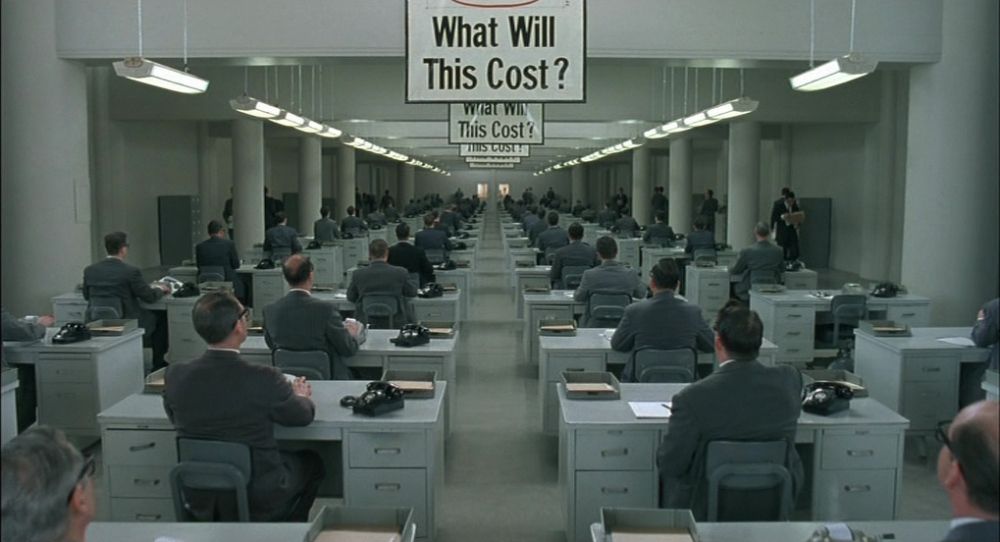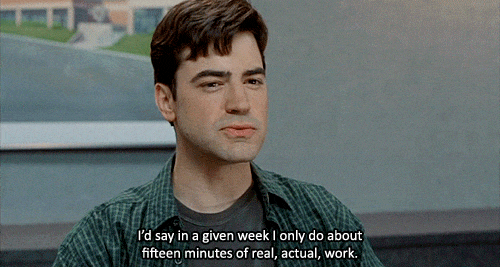This content originally appeared on Christian Heilmann and was authored by Chris Heilmann
One of the annoying things in the current tech market decline is the drive by companies to RTO - return people to office. To me, it represents a massive step back in the modern workplace. It is a blow to inclusivity and a knee-jerk reaction to show the stock market decisiveness and “leadership”.
Face to face work is excellent – but not all
Don’t get me wrong – I love working in an office and in 90% of the cases, a face-to-face meeting and sitting close with your colleagues is highly effective. I also understand that not everybody is cut out to work from home or has the physical space to set up a home office. I also understand the privacy and security issues badly configured home WiFi and devices shared with the family bring.
I also feel with people who need to “go to work” to get into a different mindset and concentrate. I’m not saying everybody needs to work from home. But I also think that forcing people to come back to the office after the pandemic is the wrong approach.
Distributed work is natural to the tech market
For the sake of my argument here let’s stick to the tech market. Companies that build software products or create solutions based on other software/cloud solutions. Having people not on premise and in other locations has plenty of benefits:
- You experience the creation and the use of your product like your end users do – not on a fat connection in the office.
- Time difference can be a great thing – people can prepare work for others or finish what others started.
- Everything you do results in a digital footprint. No information gets lost because it only got mentioned in a conversation or was a intelligible scribble on a whiteboard
- Meetings are more work to organise. You can’t grab a room and tell people to have a chat on a whim. In every single team I worked the number one feedback item how work could improve was “fewer meetings”.
- People need to document more. You can’t turn around and ask someone why their work is like it is. To avoid lots of messages and emails people tend to write cleaner solutions with human explanations
- People need to use your company’s communication tools. We spend a lot of time and effort to have great systems in a company that help with communication. Often these are under-used as it is easier to have a chat in the hallway or at lunch. This also means that a lot of these systems are terrible. People don’t give any feedback on them on how they should work, so we assume all is good.
Automatic inclusivity
Allowing people to work from home also means automatic inclusivity. Work isn’t a thing that you go to and the rest of your life needs to stop. People can find time to bring their children to school. Others can be at home when important things get delivered. And people who aren’t good around lots of people can still be a great asset to the company.
You don’t create a two class society. Promotions and career advances should be based on what people bring to the company – not where they are located. I’ve seen a lot of people go through the ranks with mediocre talent and output. But they were always present in the company HQ and ready to chat with an important person face to face. People working remote can’t do that, and – let’s be honest – is that what our work should be?
I’ve worked for and with the biggest companies in this space and always marvelled at the size of campuses. The free food, the facilities, the perks of coming to the office. It all felt incredible, gives you a sense of belonging to a elite group. But with age and other demands on your life, you also feel that it is an intrusion. At a certain age you don’t want to be in university or school any longer. Playrooms and beer pong tables feel like you’re not taken serious, but pampered instead. Infantilised, even. And when there are layoffs by the thousands the whole concept of “your company as a family of friends” is out of the window anyway.
What about people not doing work?
I’ve worked in cubicle farms, offices, shared workspaces and from home. And personally I feel like there is no better place to slack off than in the office. When you work from home, all people see is your outcome and your presence in video calls/chats. Sure, there might be gaps in between where nothing comes from you. But this is the same as people in the office looking busy.
If someone abuses the system of working from home to do nothing, you don’t have a location problem but a process issue. And an employee motivation problem. And a people manager who is asleep at the wheel. Most people want to be productive and do what they can to contribute to something bigger. If they feel that they could get away with not doing anything at all then you have a problem of respect. Or people not feeling that their contribution is valued enough. Maybe this is where we should concentrate our efforts, and not putting people in one place so they are seemingly easier to control.
This content originally appeared on Christian Heilmann and was authored by Chris Heilmann
Chris Heilmann | Sciencx (2023-03-16T13:05:01+00:00) Forcing people back into the office is a massive step backwards. Retrieved from https://www.scien.cx/2023/03/16/forcing-people-back-into-the-office-is-a-massive-step-backwards/
Please log in to upload a file.
There are no updates yet.
Click the Upload button above to add an update.


